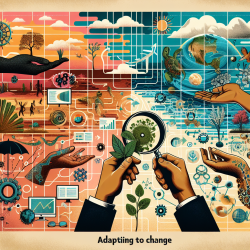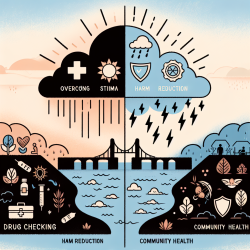Adapting to Change: How Practitioners Can Use Research to Enhance Therapy Outcomes
In the ever-evolving field of speech-language pathology, staying informed about the latest research and its practical applications is crucial for achieving the best outcomes for children. A recent article titled "U.S. Natural Resources and Climate Change: Concepts and Approaches for Management Adaptation" offers valuable insights into how adaptation strategies can be applied beyond environmental management, potentially enhancing therapy practices.
Understanding Resilience and Change
The research emphasizes the importance of managing ecosystems for resilience in the face of climate change. Resilience refers to the ability of a system to absorb disturbances and still maintain its core functions. In therapy, this concept can be translated into building resilience in children, helping them adapt to changes and challenges in their communication environments.
Furthermore, the article discusses the necessity of managing for change when resilience alone is insufficient. This involves recognizing when an ecosystem—or in our case, a therapeutic approach—needs to transition to a new state. For speech-language pathologists, this might mean adopting new strategies or technologies to better meet the evolving needs of children.
Applying Research to Practice
Here are some ways practitioners can apply these concepts to improve therapy outcomes:
- Assessing Impacts: Just as environmental managers assess climate impacts on ecosystems, therapists should evaluate how changes in a child's environment affect their communication abilities. This can involve regular assessments and adapting therapy goals accordingly.
- Building Resilience: Encourage children to develop skills that allow them to cope with changes, such as transitioning to a new school or adjusting to remote learning. This can be achieved through role-playing, problem-solving exercises, and fostering a growth mindset.
- Managing for Change: Be prepared to modify therapy approaches when traditional methods are no longer effective. This could involve integrating technology, such as online therapy platforms like TinyEYE, to provide more flexible and accessible services.
Encouraging Further Research
While the research provides a solid foundation for understanding adaptation strategies, it also highlights the need for ongoing research to refine these approaches. Practitioners are encouraged to stay engaged with current studies and contribute to the body of knowledge through their observations and experiences.
To read the original research paper, please follow this link: U.S. Natural Resources and Climate Change: Concepts and Approaches for Management Adaptation.










